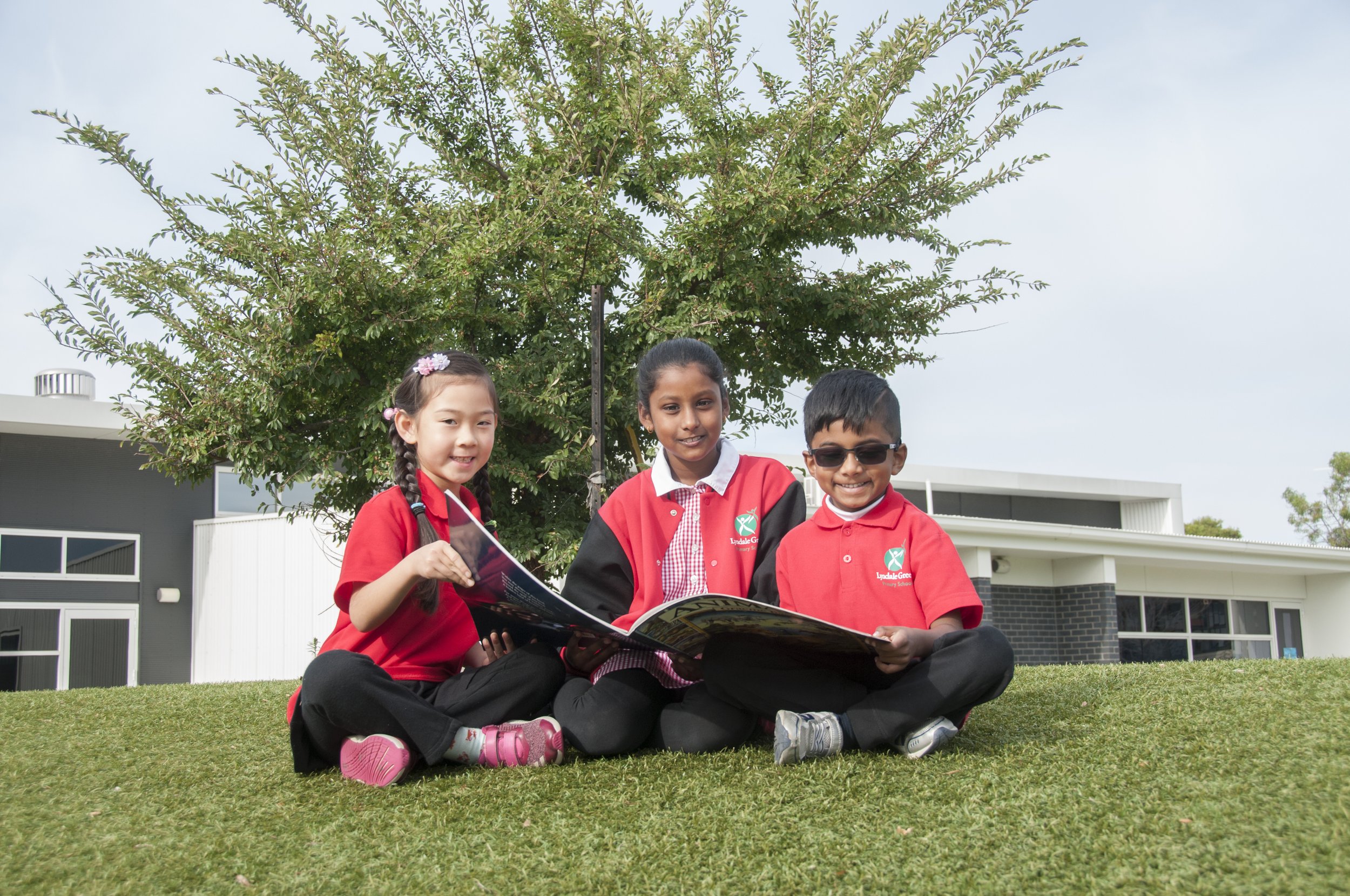
Learning
At Lyndale Greens Primary School, we are committed to delivering high-quality learning experiences grounded in research about how children learn best. Our approach to teaching literacy and numeracy reflects a strong foundation in the Science of Learning, with an emphasis on explicit instruction, cognitive load theory, and systematic skill development.
Literacy
In the early years, we prioritise the development of oral language, phonological awareness, phonics, vocabulary, fluency, and comprehension, recognising these as the cornerstones of reading success. Our teaching is structured and sequential, designed to gradually build and consolidate core skills through clear instruction and cumulative practice.
Our writing and spelling instruction ensures that students gain a deep understanding of spelling patterns, grammar, and text structures. Writing is taught through an explicit and scaffolded approach, helping students to understand the purpose, audience, and structure of different text types. Students learn how to plan, compose, revise, and refine their writing, developing confidence and voice as writers.
Numeracy
In mathematics, our instruction is grounded in the belief that conceptual understanding and fluency go hand in hand. Lessons are designed using evidence-based frameworks that support the gradual release of responsibility from teacher to student. Students are guided through concrete, pictorial, and abstract representations to help build deep understanding and flexibility with number, patterns, measurement, and problem-solving.
We deliberately manage the cognitive demands of tasks, allowing students to build automaticity with essential skills before applying them in more complex contexts. Regular opportunities for guided practice, questioning, and feedback enable students to consolidate and extend their learning in meaningful ways.
A Learning Culture
Our classrooms are safe, supportive environments where all students are known and challenged. We prioritise consistency in instruction, explicit teaching of routines and strategies, and the use of formative assessment to guide next steps. Through a shared commitment to high expectations and continuous improvement, we empower students to grow as motivated learners, critical thinkers, and effective communicators.
